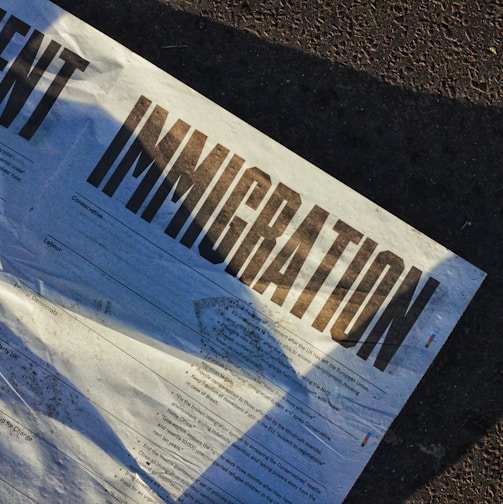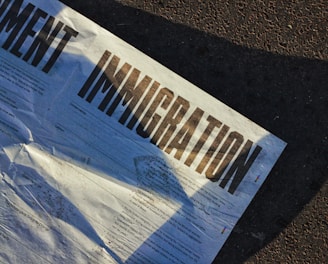With over 10 years of experience in business immigration consulting, Agopo is dedicated to helping foreigners navigate the process of obtaining Temporary Residence Permits, Schengen visas, Work Permits, and more in Lithuania. Our team of experts is committed to providing personalized solutions tailored to your specific needs.
Agopo Background
Business environment
Years of Experience
10+ Years
Expertise
Business Immigration
Services
TRP, TRC, PRP, WORK PERMIT
Obtaining a residence permit
Types of Residence Permits in Lithuania
Obtaining a residence permit in Lithuania for foreigners involves navigating through a series of steps and meeting specific eligibility criteria. Lithuania offers various types of residence permits catering to individuals with different purposes, such as employment, entrepreneurship, studies, family reunification, and more. In this detailed guide, we will explore the comprehensive process of acquiring a residence permit in Lithuania.
Types of Residence Permits in Lithuania:
1. Temporary Residence Permit (TRP):
Issued for individuals planning to stay in Lithuania for more than three months.
Commonly sought for employment, business, studies, or family reunification.
2. National D Visa:
Allows entry into Lithuania for long-term stays exceeding 90 days.
Typically serves as a prelude to obtaining a Temporary Residence Permit.
3. EU Blue Card:
Specifically designed for highly skilled non-EU/EEA professionals.
Provides an accelerated path to long-term residency in Lithuania.
4. Permanent Residence Permit (PRP):
Granted after a certain period of legal residence in Lithuania.
Offers long-term residency rights and benefits.
Eligibility and Requirements:
1. Employment-based Residence Permit:
Job Offer: A valid job offer from a Lithuanian employer is often a prerequisite.
Work Contract: Provide a signed work contract specifying terms and conditions.
2. Entrepreneurship Residence Permit:
Business Plan: Submit a detailed business plan outlining the nature and scope of the proposed venture.
Investment: Demonstrate sufficient investment funds for the business.
3. Student Residence Permit:
Acceptance Letter: Provide an acceptance letter from a recognized Lithuanian educational institution.
Financial Means: Prove financial capability to cover living expenses.
4. Family Reunification:
Family Ties: Applicants must have a family member legally residing in Lithuania.
Proof of Relationship: Provide documents proving the family relationship.
5. EU Blue Card:
Highly Skilled Employment: Applicants must have a job offer in a highly skilled position.
Qualifications: Possess the required academic or professional qualifications.
6. Permanent Residence Permit:
Legal Residency: Applicants must have legally resided in Lithuania for a specified period.
Language Proficiency: Some categories may require basic Lithuanian language proficiency.
Application Process:
1. Preparing Documentation:
Collect all necessary documents based on the type of residence permit being pursued.
Ensure documents are up-to-date and translated into Lithuanian or English if necessary.
2. Applying for a National D Visa:
For stays exceeding 90 days, start by applying for a National D Visa at a Lithuanian consulate or embassy.
Select the appropriate visa category based on the intended purpose of stay.
3. Arrival in Lithuania:
After obtaining the National D Visa, enter Lithuania and initiate the process of obtaining a Temporary Residence Permit.
4. Temporary Residence Permit Application:
Submit the required TRP documents to the Migration Department or the Lithuanian embassy or consulate in person.
Pay the applicable processing fees.
5. EU Blue Card Application:
Submit the application along with required documents to the Migration Department.
The EU Blue Card application may have an expedited processing time compared to other residence permits.
6. Permanent Residence Permit Application:
Apply for a Permanent Residence Permit after meeting the required residency period.
Demonstrate continued compliance with residency regulations.
Challenges and Considerations:
1. Language Proficiency:
Some residence permits may require basic proficiency in the Lithuanian language.
Language courses or certifications may be necessary.
2. Changing Regulations:
Keep abreast of changes in immigration laws and regulations.
Regularly check for updates on the official website of the Migration Department.
3. Legal Assistance:
Consider seeking legal assistance to navigate complex immigration procedures.
Legal professionals can provide valuable insights and ensure compliance with regulations.
Renewal and Extensions:
1. Temporary Residence Permit (TRP):
Apply for a TRP renewal before the expiration of the current permit.
Ensure continued compliance with the permit conditions.
2. EU Blue Card:
Renew the EU Blue Card in a timely manner to maintain legal residency.
Continue meeting the eligibility criteria for the renewal.
3. Permanent Residence Permit (PRP):
Permanent Residence Permits typically have a longer validity period.
Ensure ongoing compliance with residency regulations.
Conclusion:
Acquiring a residence permit in Lithuania for foreigners involves a structured and meticulous process, with specific requirements varying based on the purpose of stay. Whether pursuing employment, entrepreneurship, studies, family reunification, or another purpose, individuals must adhere to the established eligibility criteria and provide accurate documentation.
The evolving nature of immigration laws emphasizes the importance of staying informed about regulatory changes and seeking professional advice when needed. Navigating the residence permit application process requires careful planning, attention to detail, and a proactive approach to ensure a smooth transition to legal residency in Lithuania.
Foreigners aspiring to make Lithuania their home should view the residence permit application process as an opportunity to engage with the country's vibrant culture, business environment, and educational institutions. With the right guidance and adherence to legal requirements, obtaining a residence permit in Lithuania can open doors to new experiences, professional opportunities, and a fulfilling life in this European nation.


Business Immigration Projects


Apply for residence permit Now
We provide only business immigration services. To start the process we need to get from you: copy of passport, address of living.
Preparation of the documents takes about 2 weeks
Why Lithuania?
Lithuania, with its welcoming atmosphere, boasts a rich cultural heritage, a growing economy, affordable living costs, excellent education, and a strategic location within the European Union. The country provides a promising environment for immigrants seeking a high quality of life, professional opportunities, and a vibrant community.
Get in touch


Contacts
info@agopo.com
Subscribe to our newsletter
Address: Laisves pr. 125, Vilnius, Lithuania LT06118
info@agopo.com
